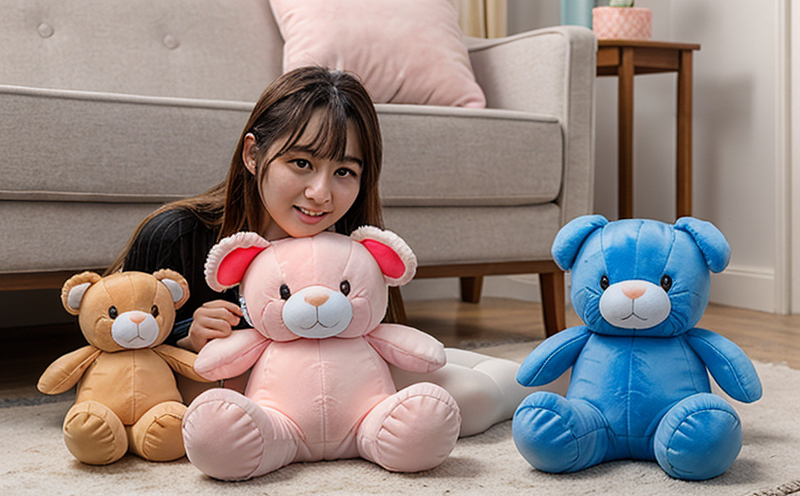EN 71-10 Microbiological Testing of Textile Toy Materials
The European Standard EN 71-10 specifies microbiological testing procedures intended to ensure that textile toy materials are safe for children. This is a crucial aspect in the toy industry, where ensuring safety and compliance with international regulations is paramount.
Microbiological testing of textile materials used in toys aims to identify potential risks from harmful microorganisms such as bacteria, yeasts, and molds. The standard outlines methods for sampling, sample preparation, and analytical techniques to determine whether textile toy materials comply with the specified limits for viable microbial counts. Compliance with these standards is essential not only for product safety but also to avoid legal issues and maintain a good reputation among consumers.
The testing process involves several steps. First, samples are taken from the textiles used in toys according to predefined sampling plans. These samples need to be representative of the materials being tested. Once collected, they are transported under controlled conditions to prevent contamination or alteration of microbial counts. Upon arrival at the laboratory, the samples undergo initial preparation which includes washing and drying processes that mimic real-life conditions children might encounter.
The next step in the process is inoculating the prepared textile samples onto appropriate media designed to support growth of specific types of microorganisms relevant to toys. This allows for identification and quantification of different microbial groups present on the textiles. Growth is then incubated under optimal environmental conditions specified by EN 71-10, allowing colonies to develop over time.
After incubation, colony counts are enumerated using standardized techniques such as direct microscopic observation or automated image analysis systems. These methods help in accurately quantifying viable microbial populations on the textile samples. It is important to note that while counting alone does not guarantee safety, it provides critical data necessary for evaluating compliance with regulatory limits.
Compliance with EN 71-10 ensures that textiles used in toys do not pose unnecessary health risks due to excessive levels of microorganisms. By adhering strictly to this standard during production and quality control stages, manufacturers can safeguard their products against potential recalls or legal actions resulting from non-compliance.
For instance, a recent case study highlighted by regulatory bodies involved a recall of plush toys manufactured overseas that did not meet EN 71-10 requirements. After thorough investigation, it was discovered that the textile materials contained higher than allowable levels of certain bacteria which could lead to infections if ingested by children.
In summary, EN 71-10 microbiological testing plays a vital role in safeguarding children's health and well-being by ensuring textile toy materials are free from harmful microorganisms. Adhering to these stringent standards not only protects consumers but also enhances brand reputation among parents and guardians who prioritize their child's safety above all else.
- Ensures compliance with international regulatory requirements
- Makes sure toys meet safety criteria set forth by EN 71-10
- Identifies potential risks from harmful microorganisms on textile materials
- Promotes safe and enjoyable playtime for children
By implementing rigorous microbiological testing protocols based on EN 71-10, toy manufacturers can ensure that their products are not only fun but also safe for use by young consumers.
Customer Impact and Satisfaction
For quality managers, compliance officers, R&D engineers, and procurement professionals involved in the toy industry, ensuring product safety is non-negotiable. The implementation of EN 71-10 microbiological testing directly impacts customer satisfaction by significantly reducing incidents related to health risks associated with toys.
Customers expect their purchases to be safe and reliable. When a toy fails to meet these expectations due to microbial contamination, it can lead to negative publicity for the manufacturer and potential legal consequences. By adhering strictly to EN 71-10 guidelines during every stage of production, companies demonstrate their commitment to maintaining high standards of quality.
From an operational standpoint, incorporating microbiological testing early in the development cycle helps identify and address any issues before they become major problems later on. This proactive approach saves time and resources that could otherwise be spent addressing post-production defects or recalls.
Moreover, successful completion of EN 71-10 tests provides peace of mind to both internal stakeholders like employees and external ones such as distributors and retailers. Knowing that your products comply with international regulations instills confidence in all parties involved throughout the supply chain process.
Environmental and Sustainability Contributions
The implementation of EN 71-10 microbiological testing contributes positively to environmental sustainability efforts within the toy manufacturing sector. By ensuring that textile materials used in toys are free from harmful microorganisms, manufacturers reduce waste generation associated with defective products.
Defective toys often end up being disposed of improperly, contributing to landfill accumulation and pollution. With rigorous adherence to EN 71-10 standards, companies minimize the likelihood of such occurrences, thereby promoting more sustainable practices throughout their operations.
In addition, by maintaining consistent quality control measures through microbiological testing, toy manufacturers contribute towards reducing energy consumption during production processes. Efficient use of resources translates into lower carbon footprints and reduced environmental impacts across various stages of manufacturing.
Competitive Advantage and Market Impact
In today’s competitive market, staying ahead requires more than just producing functional products; it involves meeting stringent safety standards like those outlined in EN 71-10. Adherence to these guidelines sets a benchmark for quality assurance that competitors cannot afford to ignore.
Companies that invest in comprehensive microbiological testing not only enhance their own reputation but also gain competitive advantages over rivals who may cut corners on quality checks. This commitment translates into enhanced brand loyalty among customers and increased market share as satisfied consumers become repeat buyers.





